Figure 4
Productivity Shock in the Representative Agent Economy
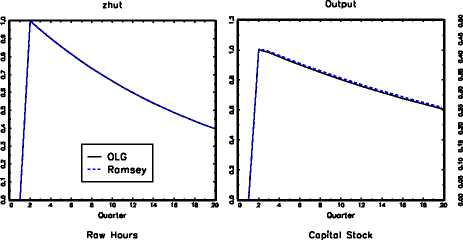

Inflation
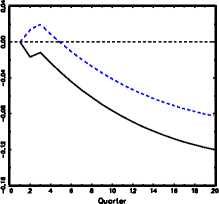
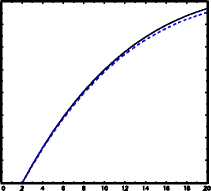
Reol b.o.p. Money Balances

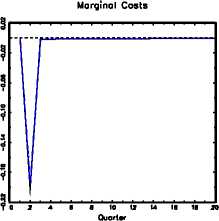
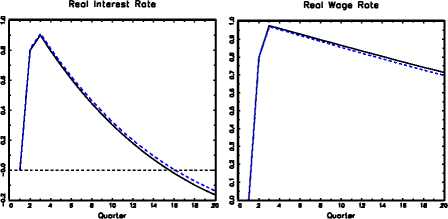
Even though the impulse responses for working hours differ between the two models,
the reaction of output is the same. One has to keep in mind that effective labor and
raw hours react differently to a productivity shock in the OLG model since the more
productive workers increase their labor supply relative to the less productive workers.
Since empirical research on the impulse response of working hours after a technology
shock has focused on raw hours, our OLG model provides a possible resolution of this
puzzle.
4.3 Monetary shock
An expansionary monetary shock increases demand. As prices are sticky and firms are
monopolistic competitors in the intermediate goods sector, output and employment
increases. The impulse response functions of aggregate variables to a monetary growth
shock εθ,2 = 1 in period 2 (and zero thereafter) are presented in Figure 5. Again, the
20
More intriguing information
1. Inflation Targeting and Nonlinear Policy Rules: The Case of Asymmetric Preferences (new title: The Fed's monetary policy rule and U.S. inflation: The case of asymmetric preferences)2. Investment in Next Generation Networks and the Role of Regulation: A Real Option Approach
3. Life is an Adventure! An agent-based reconciliation of narrative and scientific worldviews
4. Spatial Aggregation and Weather Risk Management
5. The name is absent
6. The Role of State Trading Enterprises and Their Impact on Agricultural Development and Economic Growth in Developing Countries
7. Solidaristic Wage Bargaining
8. The name is absent
9. Linkages between research, scholarship and teaching in universities in China
10. A Rare Presentation of Crohn's Disease